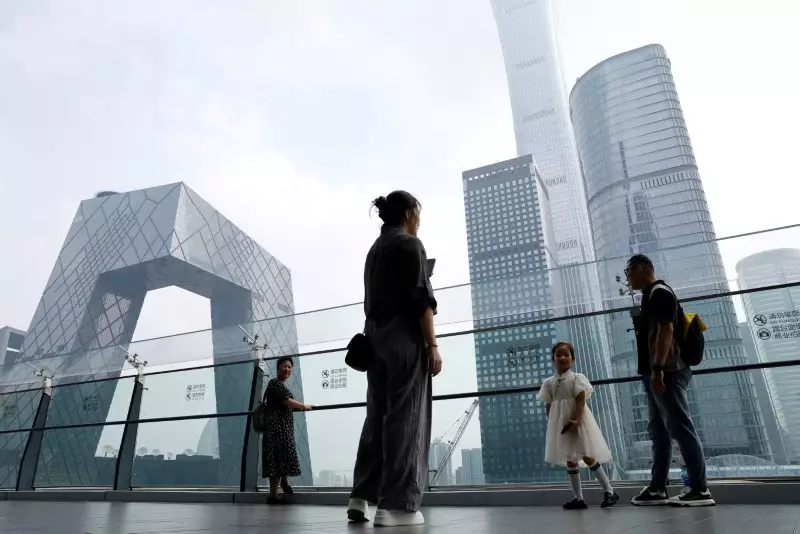The recent economic data coming out of China is painting a bleak picture of the country’s economic health. New home prices have experienced the sharpest decline in nine years, industrial output is slowing, export and investment growth are decreasing, and unemployment rates are on the rise. While there are some data points that beat forecasts, they are not indicative of a healthy economy. Rising inflation is being attributed to bad weather rather than increased domestic demand, a surge in imports is due to frontloaded chip purchases in anticipation of U.S. technology restrictions, and an uptick in retail sales is mainly due to low comparisons from the previous year.
Policy Intervention Required
With the economic indicators pointing towards a worsening situation, policymakers in Beijing are under pressure to take action. The current economic performance is falling short of the target, necessitating immediate and significant policy intervention. There are talks of widening the budget deficit to 4% of the gross domestic product (GDP) from the planned 3% and increasing stimulus measures to avoid the economy from sliding into a downward spiral.
In light of the diminishing returns from traditional infrastructure spending and concerns over overcapacity in advanced manufacturing, there is a need for a shift in how the extra funds are allocated. The focus needs to move towards supporting domestic demand rather than solely relying on infrastructure and exports for growth. Analysts are suggesting that policymakers need to step up their support for domestic demand if they still aim to achieve the 5% growth target.
Consumer Stimulus Measures
As consumer spending wanes, e-commerce companies in China are resorting to heavy discounts and promotions to attract shoppers, impacting retail sector margins. There is a growing consensus among analysts that the previous economic stimulus measures are not yielding the desired results. There are discussions around implementing direct support to consumers in the form of cash or vouchers worth at least 1 trillion yuan ($139 billion).
While the idea of providing direct support to consumers is gaining traction, there is skepticism about whether Beijing will actually implement such measures. Historically, Chinese officials have been more inclined to support businesses during economic crises, leaving consumers to navigate the challenges on their own. Experts believe that the impact of vouchers would be short-term, and sustainable consumption growth will only occur when the property market and stocks start to recover.
China’s economic landscape is facing significant challenges, with the slowdown in growth posing a threat to its long-term stability. The heavy reliance on manufacturing and exports is no longer sufficient to sustain the economy at its current size. A shift towards supporting domestic demand and consumer spending is essential to ensure sustainable growth. Policymakers in Beijing must navigate these challenges carefully to steer the economy towards a path of stability and prosperity.


Leave a Reply